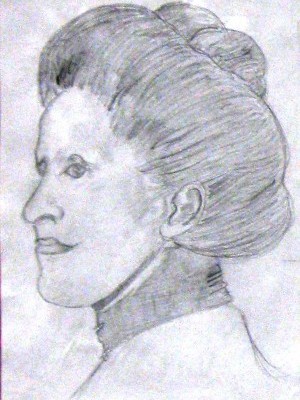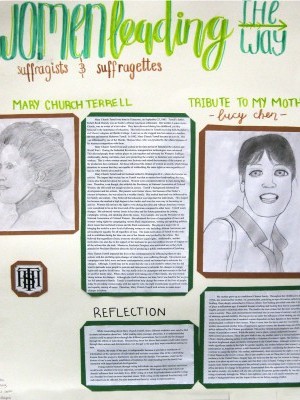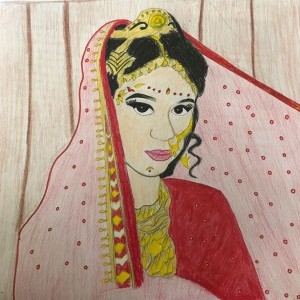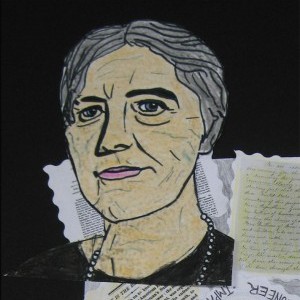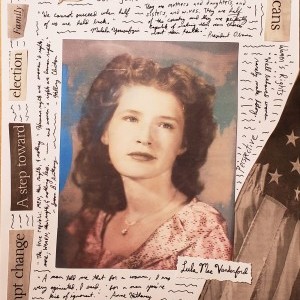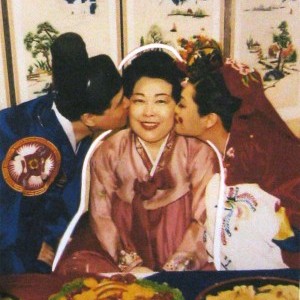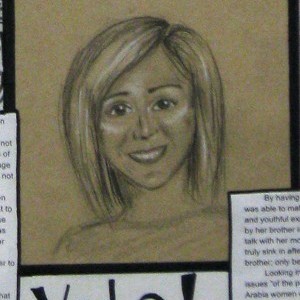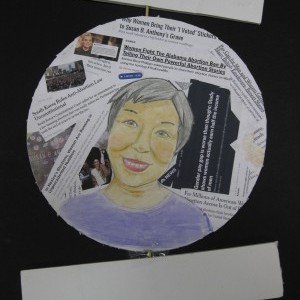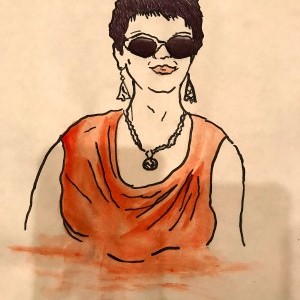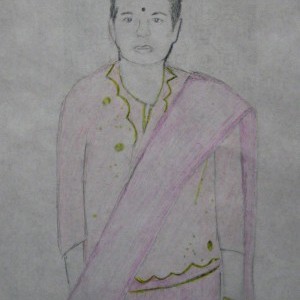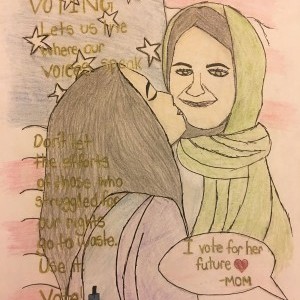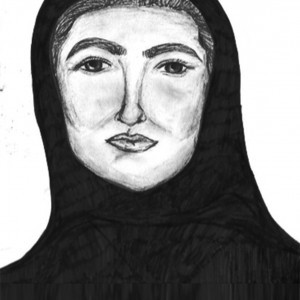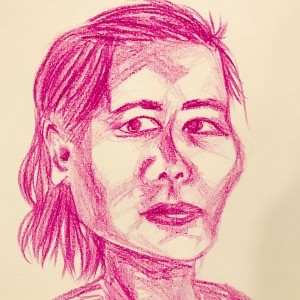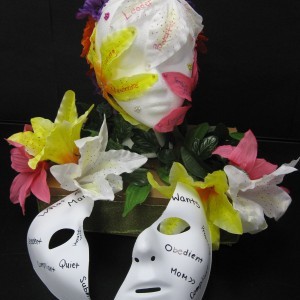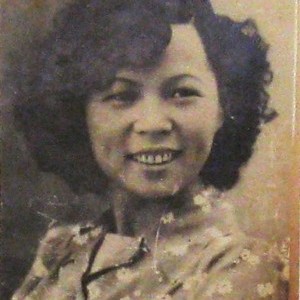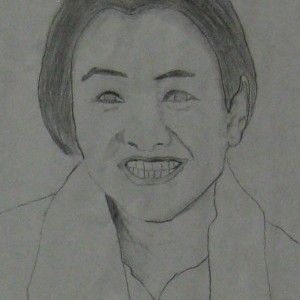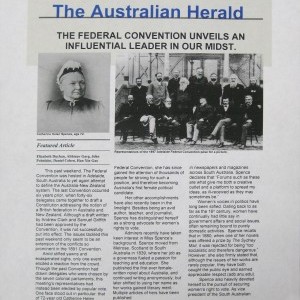Miao Xia, Shirley Wong, Stephanie Seetoo & Mariam Mahgoub
Townsend Harris High School | Flushing, NY | 11th Grade
Inspirational Family Member
My Mother
My mother grew up in a traditional Chinese family. Throughout her childhood in the 1970s, she witnessed her mother, my grandmother, practicing an age-old custom called foot binding. Once deeply entrenched in Chinese culture, foot binding prevailed even after it fell out of place a millennium ago. It entailed females crushing and binding their feet in a painstakingly lengthy process to minimize their size. The smaller the size of their feet, the more desirable they were in society. Thus, such measurements translated into its own form of currency and a method of attaining upward mobility.
Having grown up under the influence of foot binding, my mother came to the realization that it rendered women dependent on their families as they became predominantly confined to their homes. When it came time for her to start her own family, my mother encountered another form of oppression against women: the decades-long one-child policy enforced by the Chinese government. This policy limited most couples to one child as a means of population control. While the policy was in place, women underwent invasive birth-control procedures. Since she gave birth to me, my mother came to a second realization, that China’s family-planning policy is undoubtedly a violation of women’s rights. Her feelings of injustice heightened when our family immigrated to the United States.
Although women have made significant strides in the fight for gender equality, my mother believes that women’s equal participation in American society is still threatened, especially considering the abortion bans that continue to sweep the nation. My mother, unfortunately, does not possess the right to vote in the United States as she is not a citizen. She is also unable to vote in China due to her permanent residency in the United States. Despite that, she believes that the way for women to change the system is to show up and vote to make sure that their voice is heard. Voting is also a vital way to acquire more female representation in the political system, encouraging more women to run for office and press for change in the process. Emancipated from the oppression she experienced in her native country, my mother will one day advocate for greater gender equality by voting vicariously through me. When I turn eighteen years old, I will surely remember my mother’s background story and the impact it has on me before casting a ballot.
Historical Figure I Admire
Mary Church Terrell
Mary Church Terrell was born in Tennessee, on September 23, 1863. Terrell’s father, Robert Reed Church, was a Southern African American millionaire. Her mother, Louisa Ayres Church, was an owner of a hair salon. They divorced during her childhood, yet they believed in the importance of education. This belief resulted in Terrell receiving both Bachelor’s and Master’s degrees in Oberlin College. Later on, as she stepped into her career as a teacher, she met and married Heberton Terrell. In 1892, Mary Church Terrell became an activist. She was influenced by one of her friends, Thomas Moss, who was lynched by the whites because of his business competition with them.
Mary Church Terrell lived and worked in the time period during the Industrial Revolution and World War I. During the Industrial Revolution, transportation technologies were advanced. This allowed people from various places to join together and advocate for Women’s Suffrage. Additionally, during war times, men were protecting the country so factories were emptied of workers. This is when women entered into factories and raised the economy of the country as the production line continued. All these influenced the impact of women in society, which brings attention to women that they are capable of holding the same rights as men regardless of race as what Terrell advocated for.
Mary Church Terrell and her husband settled in Washington D.C., where she became an activist. The impact that society had on Terrell was that no matter how hardworking the was, voices arose beside her about her actions. Women were considered inferior to men during that time. Therefore, even though she held the Presidency in the National Association of Colored Women, she still could not escape sexism in society. Terrell’s background informed her development and her actions. Her parents were former slaves, but because of her father’s success in business, she was raised in a wealthy family. She studied hard and was influenced by her family and culture. They believed that education was important for individuals. This shaped her because she reached a high degree in her studies and went her own way in becoming an activist. Women did not have the right to vote during that time and African American women were considered to be on the lower end of the spectrum compared to other races. Terrell wanted changes. She advanced various issues in her time and for future generations by joining campaigns, writing, and speaking about the issues. For example, she was the President of the National Association of Colored Women. She advanced the issue of desegregation of races and women’s voting rights by campaigning with various black organizations, writing and speaking publicly about issues that restricted women and the black community. She played a major role in bringing the world to a new level of allowing women to vote including African Americans and advocating for equality for all regardless of race. The main motivation of Terrell to take risks and to contribute during her time was after one of her friends was lynched by a white mob. She believed that regardless of race, everyone should have equal rights. Additionally, another motivation was also her husband who gave her endless amount of support on all the actions that she took. Moreover, Frederick Douglass also motivated her as they both appealed to President Benjamin Harrison about the failure of producing a public condemnation of lynching.
Mary Church Terrell impacted the lives of her contemporaries by influencing them to take action with her. Movements and campaigns were held, more and more contemporaries joined and teamed up to advocate for changes. Terrell may not have been aware that she was a role model to others, but she did want to persuade more people to join her and raise power to advocate for changes in women’s rights and equality for all races. She was really active in her campaigning so she had to sacrifice family time. When other women were taking care of their family, she was outside taking action for change. Terrell’s contributions helped change the course of the lives of people today by providing women with the right to vote, the right to participate in political events, and equality among all races.
What the Project Means to Me
While researching about Mary Church Terrell, many different websites were used to find accurate information about her. After reading many passages about her, it is understood that actions could be passed down through the different generations, but it could also be changed through the efforts of individuals. Researching about her shows that women could make history through their actions and determination, even though in the past they were considered inferior to men.
History, the study of the past, is indispensable because it provides a warehouse of information on the operations of individuals and societies over time. One of the culminating lessons from this project is that history can also provide identity. For instance, studying the history of one’s own family establishes a foundation for understanding how the family has interacted with larger historical developments.
Voting matters because through voting, individuals can express their opinions and views on all levels, whether it is local, statewide, or nationwide. With local voting, individuals can directly influence their own daily lives. With voting on a state level, individuals can directly influence their own daily lives. With voting on the national level, not only will individual lives be affected but also international laws, by voting in representatives.
Explore the Archive
More From This Class
Click on the thumbnails below to view each student's work.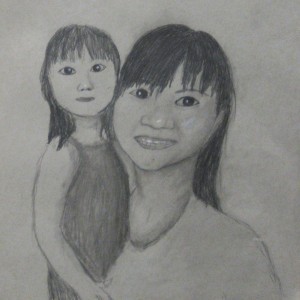
Vivian Chen, Josephine Chen, Ivan Chan, Zafirah Rahman, Neeharika Reddy, Daniel Shi, Daniel Shi, Jacqueline Cho & Osiris Guerrero

Jennifer Moran, Adebola Ademola, Julia Hong, Vicki Kanellopoulos, Inga Kulma, Maimunah Virk, Deborah Molina & Kailey Van
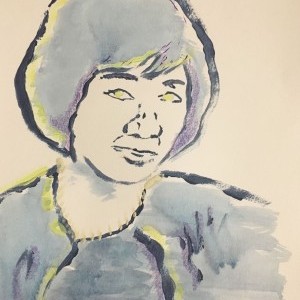
Kristina Chang, Sarah Chowdhury, Bethany Leung, Letian Fang, Cathy Choo, Kelly Chan, Emily Tan, Adamary Felipe & Kenney Son


